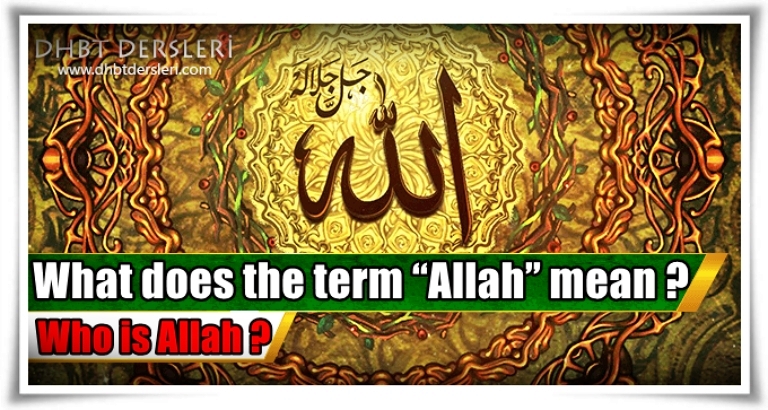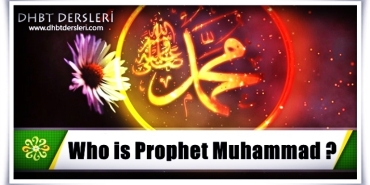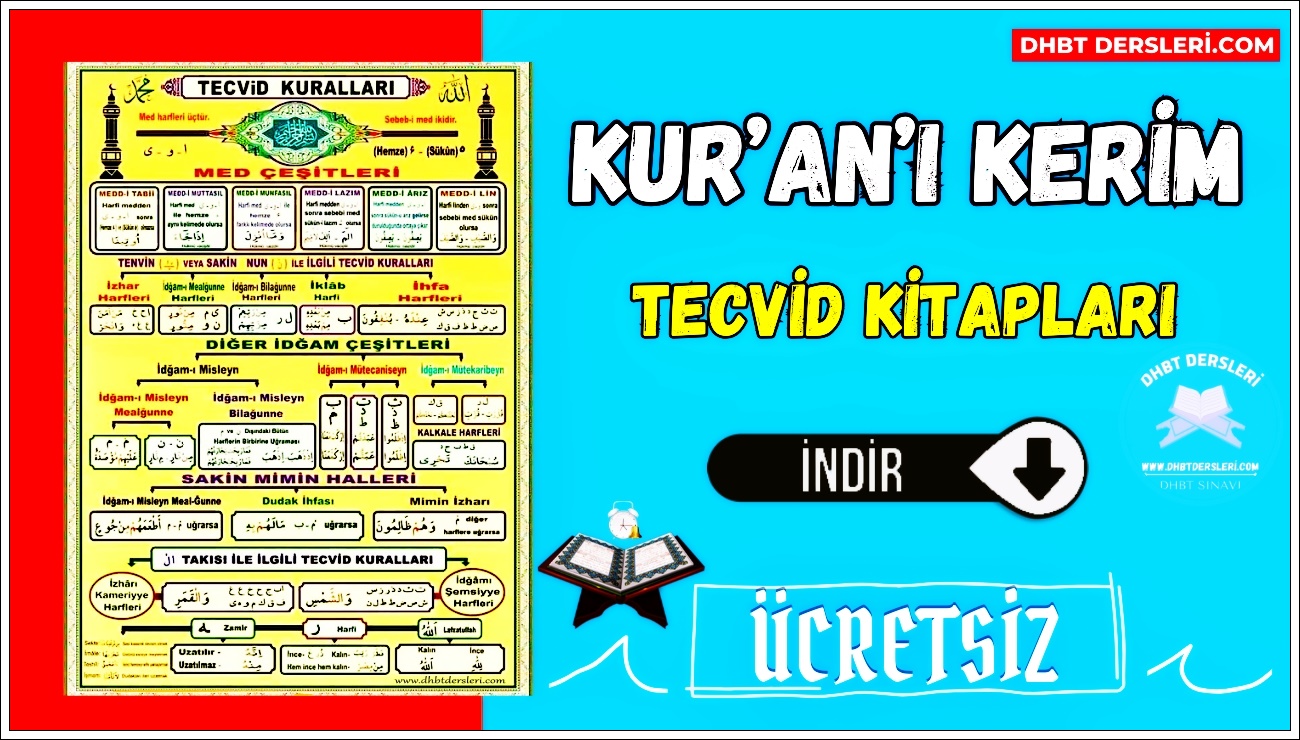Who is Allah ? What does the term “Allah” mean ?
Allah is unique and inimitable, beyond comparison, He is absolute, infinite and eternal, and He is the only Creator. The Creator is one, while created beings are uncountable.
He is the One whose existence is essential to those created. The word “Allah” is derived from the root “al-Ilah,” meaning “the absolute and infinite Deity.” The anagram of combinations of all versions of the word “Allah” eventually leads to “love.” He is the One Allah: Allah the Eternal, the Uncaused Cause of All Being. He begets not, and neither is He begotten. And there is nothing that could be compared with Him. (Ikhlas 112:1-4)
He is the one who created the universe out of nothing; He governs, regulates laws and ensures a natural order and harmony flows throughout the creation. He is the only One who is perfect and impeccable. Nothing else is truly perfect other than Him. Allah is most compassionate towards man, a dispenser of grace.(Baqarah 2:143)
My grace overspreads everything. (A`raf 7:156)
Your Sustainer has willed upon Himself the law of grace and mercy. (‘An`am 6:54)
Our Sustainer is He who gives unto every thing [that exists] its true nature and form and thereupon guides it [towards its fulfillment]. (Taha 20:50)
He is the First and the Last. (Hadid 57:3)
His being is eternal, without anything preceding His existence, and without anything outlasting His infinity. He is the source of love, kindness, and compassion. He is the One who created life out of nothing, decreed a purpose of creation and endowed the creations with necessary means to reach it. No human vision can encompass Him, whereas He encompasses all human vision: for He alone is unfathomable, allaware. (‘An`am 6:103)
Allah is He who is enough for humans while they are not enough for themselves (Zumar 39:36). Allah intervenes between man and [the desires of] his heart, and that unto Him you shall be gathered. (‘Anfal 8:24)
His mercy is limitless (Zumar 39:53).
He is the light of the heavens and Earth (Nur 24:35).
Each and every thing is ephemeral, only He is eternal (Rahman 55:27).
He determines every single being’s existence (Mursalat 77:23).
He reveals guidance upon those whom He wishes (‘An`am 6:91).
On Him depend all creatures in the heavens and on earth; [and] every day He manifests Himself in yet another [wondrous] way. (Rahman 55:29)
He has created everything in due measure and proportion (Qamar 54:49).
They aim to extinguish Allah’s light with their utterances: but Allah has willed to spread His light in all its fullness, however hateful this may be to all who deny the truth. (Saf 61:8)
And as for those who attain to faith and do righteous deeds, We shall most certainly efface their [previous] bad deeds, and shall most certainly reward them in accordance with the best that they ever did. (`Ankabut 29:7)
Allah does not resemble any of His creations. What the creation envisages in his/her mind is not Allah because the human mind is finite and limited, while Allah is infinite and limitless. A finite and limited mind cannot comprehend the infinite and limitless One.
Servitude is due only to Allah as He is the only One worthy of worship. Allah has rights over His creations, including worshipping Him alone. Therefore, servitude to and worshipping of any one else is a violation of Allah’s right. Logically, being servant of Allah entails not being a servant of any of His servants.
What is the difference between the concepts of Allah in Islam, Christianity, and Judaism?
The concept of Allah in Judaism is anthropomorphic, i.e. God has human attributes. He allegedly acts like a human sometimes and features qualities of a human. For instance, He “regrets” destroying humanity with a typhoon (Genesis 6:5-7); He “impregnates” Sarah (Genesis 21:1-2); He “wrestles” with Jacob (Genesis 32; 22-32); He talks “face to face” with Jacob (Genesis 32:30); and He becomes “tired” and “rests” (Genesis 2:3). Whereas the Qur’an says that “His is all that is in the heavens and all that is on Earth, most exalted and tremendous is He” (Shuraa 42:4), “there is nothing like unto Him” (Shuraa 42:11), and “No human vision can encompass Him, whereas He encompasses all human vision” (‘An`am 6:103).
According to the Torah, Yahweh is a “national” god of the tribe of Israel (Genesis 17:8), whereas in the Qur’an, “Allah is the Lord of all mankind” (Nas 114:1) and “the Sustainer of all the worlds” (Shu`ara’ 26:164).
The concept of God in Christianity, on the other hand, is theomorphic, i.e. a human being has allegedly assumed divine attributes. This is a point on which the Christian doctrine of divinity is similar to doctrines of ancient polytheistic cultures such as those of Egypt, Mesopotamia or India. The divine nature of Jesus is strongly advocated for in Christianity. However, the Qur’an considers this as a slander to Jesus who is presented as only a prophet of Allah (see the Qur’an Ma’idah 5:117).
The Qur’an strongly rejects the ideology of theomorphic approach in Surah Al-Ikhlas: “Say: He is Allah, unique, inimitable and one. All creatures are in need of him while He is in need of no one. He begets not, and neither is He begotten” (‘Ikhlas 112:1-4)
How does the Quran describe Allah?
What attributes of Allah does the Quran dwell into?
Allah’s defining attribute is that of infinite Mercy and every act of His is infused with His boundless Compassion and Grace: “He alone is truly Forgiving, Loving and wants to be loved by his servants” (Buruj 85:14).
Allah is He save whom there is no deity: the One who knows all that is beyond the reach of a created being’s perception, as well as all that can be witnessed by a creature’s senses or mind: “Allah is He save whom there is no deity: the Supreme Sovereign, the Holy, the One with whom all salvation rests, the Giver of Faith and Safety, the ultimate Determiner of what is good and true and Definer of what is false, the Compeller (whose will is carried out in every circumstance), the One to whom all Greatness belongs! Utterly remote is Allah, in His limitless glory, from anything to which men may ascribe a share in His divinity!” (‘Ali`Imran 3:2)
He is Allah, the Creator, the Maker who shapes all forms and appearances! His [alone] are the attributes of perfection. All that is in the heavens and on earth extols His limitless glory: for He alone is almighty, truly wise. “Allah—there is no deity save Him, the Ever-Living, the Self- Subsistent Fount of All Being. Neither slumber overtakes Him, nor sleep. His is all that is in the heavens and all that is on earth. Who is there that could intercede with Him, unless it be by His leave? He knows all that lies open before men and all that is hidden from them, whereas they cannot attain to aught of His knowledge save that which He wills [them to attain]. His eternal power overspreads the heavens and the earth, and their upholding wearies Him not. And he alone is truly exalted, tremendous.” (Baqarah 2:255)
“Allah—there is no deity save Him, the Ever-Living, the Self- Subsistent Fount of All Being!” (‘Ali`Imran 3:2)
“Allah is the Light of the heavens and the earth.” (Nur 24:35)
“It is Allah who has created you, and then has provided you with sustenance, and then will cause you to die, and then will bring you to life again. Can any of those beings or powers to whom you ascribe a share in His divinity do any of these things? Limitless is He in His glory, and sublimely exalted above anything to which men may ascribe a share in His divinity!” (Rum 30:40)
“O men! It is you, who stand in need of Allah, whereas He alone is selfsufficient, the One to whom all praise is due.” (Fatir 35:15)
“Is not Allah enough for His servant? And yet, they would frighten thee with those [imaginary divine powers which they worship] beside Him! But he whom Allah lets go astray can never find any guide.” (Zumar 39:36)
“He who desires might and glory [ought to know that] all might and glory belong to Allah [alone]. Unto Him ascend all good words, and the righteous deed does He exalt.” (Fatir 35:10)
“And Allah alone comprehends the hidden reality of the heavens and the earth: for all that exists goes back to Him [as its source]. Worship Him, then, and place thy trust in Him alone: for thy Sustainer is not unaware of what you do.” (Hud 11:123)
“Now whoever surrenders his whole being unto Allah, and is a doer of good withal, has indeed taken hold of a support most unfailing: for with Allah rests the final outcome of all events.” (Luqman 31:22)
“…He whom Allah guides aright can never be led astray. Is not Allah almighty, an avenger of evil?” (Zumar 39:37)

































